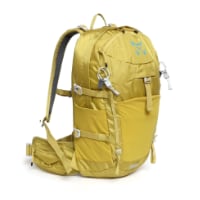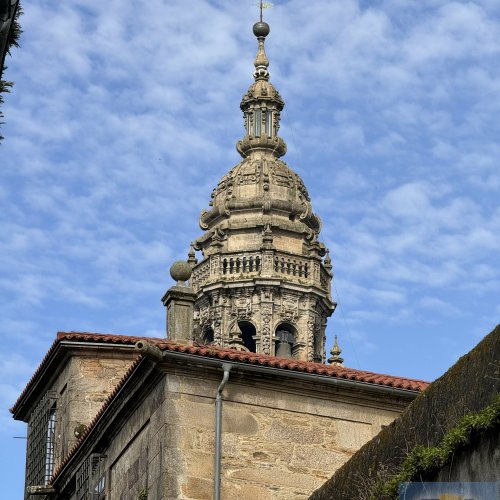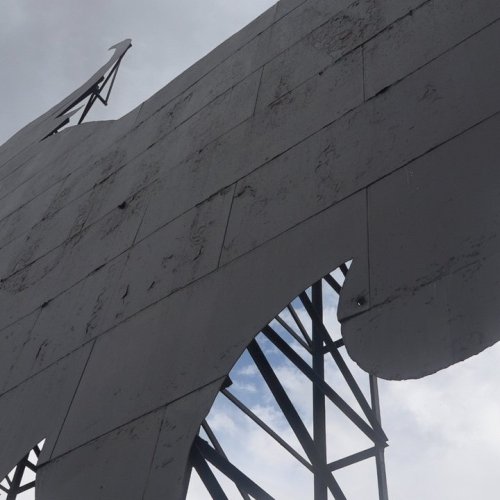-
Get your Camino Frances Guidebook here.
-
For 2024 Pilgrims: €50,- donation = 1 year with no ads on the forum + 90% off any 2024 Guide. More here.
(Discount code sent to you by Private Message after your donation) -
 ⚠️ Emergency contact in Spain - Dial 112 and AlertCops app. More on this here.
⚠️ Emergency contact in Spain - Dial 112 and AlertCops app. More on this here.
Search 69,459 Camino Questions
You are using an out of date browser. It may not display this or other websites correctly.
You should upgrade or use an alternative browser.
You should upgrade or use an alternative browser.
Training
- Thread starter jiggy
- Start date
The 9th edition the Lightfoot Guide will let you complete the journey your way.
sillydoll
Veteran Member
- Time of past OR future Camino
- 2002 CF: 2004 from Paris: 2006 VF: 2007 CF: 2009 Aragones, Ingles, Finisterre: 2011 X 2 on CF: 2013 'Caracoles': 2014 CF and Ingles 'Caracoles":2015 Logrono-Burgos (Hospitalero San Anton): 2016 La Douay to Aosta/San Gimignano to Rome:
In YOUR CAMINO I suggest you prepare your mind, body and soul for walking the Camino. There are six pages on Getting your mind right, Getting into the Spirit, and Physical training, as well as a 16 week training program for walkers. Part of your training should be to test all your equipment, shoes, socks, shorts, shirts, backpack, etc.
Here is an excerpt from the book:
Nobody in their right mind would attempt to climb the Himalayas without serious training and preparation. Besides collecting and testing the necessary clothing and equipment, and doing lots of physical training, mountaineers and long-distance hikers should be mentally, spiritually and psychologically prepared for this test of their endurance.
Although hundreds of reasonably fit people walk the Camino every year without a heavy regime of training beforehand, the majority need to develop fitness, to be physically strong and to be mentally, psychologically and spiritually prepared.
Doing a Camino is not a sprint; it is a test of endurance, covering at least half a marathon, day after day, for 35 days in a row. You’ll have a much better chance of enjoying your pilgrimage, of coping with the crossing of two or three mountain ranges, of withstanding the extremes of climate, the change of food and water and of maintaining your focus if you are physically fit, mentally strong and spiritually prepared to accept all the challenges of the Camino.
You would not go on a 1 000 km car journey without having your vehicle serviced, or at least checking the oil, water, tyre pressure and filling up the tank. Make sure that you are in top physical shape for the long walk. Ensure good health by eating a balanced diet, lots of fruit and vegetables and increase your protein intake to build more muscle, and calcium to strengthen bones.
This is not a sprint or a marathon where you need to bulk on carbohydrates. A course of multi-vitamins and immune boosters might balance what your body is lacking. Try to regularly get a good night sleep. Your body recovers while you are sleeping and depriving it of sleep will result in exhaustion and sluggish muscles.
Besides your daily walking training (Appendix 3), do specific exercises to strengthen back and shoulder muscles. Whilst watching television, lift weights – perhaps leg lifts with a heavy towel across both feet – to strengthen tummy and torso.
For shoulders and arms, hold a 450 g can of food in each hand and do weight training for arms and shoulders. With arms outstretched on either side of the body rotate the cans to the count of ten; then bring hands to shoulders to the count of ten; bend your arms and bring elbows and hands together, level with shoulders – open and close to the count of ten. Before you go, treat your feet to a pedicure so that toenails are short and problem spots are dealt with.
Any training should be specific to the event: cycling for a cycle event, walking for a walking event. Cross training is great and relieves the monotony of doing specific training but if you are going to walk the Camino then you need to do WALKING training.
Start by walking through your favourite shopping mall – taking the stairs between levels. Progress to walking around your neighbourhood; measure a distance of 2 km to 5 km with your car and walk that route two or three times a week. Build up the distance and time on your feet. Buy a pedometer to measure the distances you walk and keep a log – you will be surprised at how the kilometres build up. Once you have established a regular walking regime, try to walk every day. Do three longish walks of up to 10 km each week and a few shorter walks of between 2 km and 5 km. Do longer distances over the weekends – up to 20 km. Nearer the time of departure, walk back-to-back long walks and hikes over hilly terrain with your backpack. Keep walking, and when it is time for your walk, you will be ready!
Here is an excerpt from the book:
Nobody in their right mind would attempt to climb the Himalayas without serious training and preparation. Besides collecting and testing the necessary clothing and equipment, and doing lots of physical training, mountaineers and long-distance hikers should be mentally, spiritually and psychologically prepared for this test of their endurance.
Although hundreds of reasonably fit people walk the Camino every year without a heavy regime of training beforehand, the majority need to develop fitness, to be physically strong and to be mentally, psychologically and spiritually prepared.
Doing a Camino is not a sprint; it is a test of endurance, covering at least half a marathon, day after day, for 35 days in a row. You’ll have a much better chance of enjoying your pilgrimage, of coping with the crossing of two or three mountain ranges, of withstanding the extremes of climate, the change of food and water and of maintaining your focus if you are physically fit, mentally strong and spiritually prepared to accept all the challenges of the Camino.
You would not go on a 1 000 km car journey without having your vehicle serviced, or at least checking the oil, water, tyre pressure and filling up the tank. Make sure that you are in top physical shape for the long walk. Ensure good health by eating a balanced diet, lots of fruit and vegetables and increase your protein intake to build more muscle, and calcium to strengthen bones.
This is not a sprint or a marathon where you need to bulk on carbohydrates. A course of multi-vitamins and immune boosters might balance what your body is lacking. Try to regularly get a good night sleep. Your body recovers while you are sleeping and depriving it of sleep will result in exhaustion and sluggish muscles.
Besides your daily walking training (Appendix 3), do specific exercises to strengthen back and shoulder muscles. Whilst watching television, lift weights – perhaps leg lifts with a heavy towel across both feet – to strengthen tummy and torso.
For shoulders and arms, hold a 450 g can of food in each hand and do weight training for arms and shoulders. With arms outstretched on either side of the body rotate the cans to the count of ten; then bring hands to shoulders to the count of ten; bend your arms and bring elbows and hands together, level with shoulders – open and close to the count of ten. Before you go, treat your feet to a pedicure so that toenails are short and problem spots are dealt with.
Any training should be specific to the event: cycling for a cycle event, walking for a walking event. Cross training is great and relieves the monotony of doing specific training but if you are going to walk the Camino then you need to do WALKING training.
Start by walking through your favourite shopping mall – taking the stairs between levels. Progress to walking around your neighbourhood; measure a distance of 2 km to 5 km with your car and walk that route two or three times a week. Build up the distance and time on your feet. Buy a pedometer to measure the distances you walk and keep a log – you will be surprised at how the kilometres build up. Once you have established a regular walking regime, try to walk every day. Do three longish walks of up to 10 km each week and a few shorter walks of between 2 km and 5 km. Do longer distances over the weekends – up to 20 km. Nearer the time of departure, walk back-to-back long walks and hikes over hilly terrain with your backpack. Keep walking, and when it is time for your walk, you will be ready!
Technical backpack for day trips with backpack cover and internal compartment for the hydration bladder. Ideal daypack for excursions where we need a medium capacity backpack. The back with Air Flow System creates large air channels that will keep our back as cool as possible.
€83,-
€83,-
M
mikevasey
Guest
Hi Jiggy,
Good advice from the other two posters, and mine is not to feel too daunted by the length of the camino. The total distance will take care of it self as long as you are able to walk the day to day km's.
I walk with Spanish people occasionally and they often use the phrase' little by little' and it is true.
Good advice from the other two posters, and mine is not to feel too daunted by the length of the camino. The total distance will take care of it self as long as you are able to walk the day to day km's.
I walk with Spanish people occasionally and they often use the phrase' little by little' and it is true.
letendre
Member
- Time of past OR future Camino
- Le Puy-SJPDP-Santiago (2010), Stevenson (2011), SJPDP-Santiago (2012), Le Puy-SJPDP (2013)
Arles-Somport-Santiago (2014) ourense-santiago (2015)
The only thing you should need before you start is to be able to walk 20 km a day and the same distance the day after
johnnyman
Active Member
- Time of past OR future Camino
- June/July 2011 and 2013
There is really nothing that can fully prepare you for walking the Camino. It is not the distance(s) you walk each day, but the time spent on your feet, day after day, that takes its toll. The most important thing is to take breaks. Don't walk for 6 or 7 hours without stopping. Have a sit, remove your socks and shoes. Let your socks dry out, or change your socks. Your feet are the most important thing. Leg muscles may be sore, but they will become conditioned. It is the feet that really take a pounding. Take breaks. Sit for 30 minutes and give the feet a rest ...
A selection of Camino Jewellery
nellpilgrim
Veteran Member
- Time of past OR future Camino
- SDC-Fisterra 08/Camino Frances SJPP to SDC 09/Nuremburg-SDC 11- ongoing
Hi Jiggy
And remember in addition to all of the above that you will find that you will 'walk into fitness' over the course of your journey. So please be easy on yourself at the start and be confident in the knowledge that as you become fitter and stronger you will be able to redress any 'distance deficit' without damaging yourself.
Have fun.
Nell
And remember in addition to all of the above that you will find that you will 'walk into fitness' over the course of your journey. So please be easy on yourself at the start and be confident in the knowledge that as you become fitter and stronger you will be able to redress any 'distance deficit' without damaging yourself.
Have fun.
Nell
+@^^
Active Member
while training, get to know your own walking speed
is it 4kmph, 5, 6 etc?
a common wrecker of pilgrimages is to walk with a group that is faster than you
(because they are fun / speak your language / are stopping at the same town / started at the same place blah blah)
more knees, hips, feet, ankles, backs have been damaged through this very understandable need
.
my Dutch friend Hilde (i miss you Hilde) had a great philosophy
she tried NOT to see how fast she could walk
but she tried to see if she could spend the whole day getting there - as slowly as possible
is it 4kmph, 5, 6 etc?
a common wrecker of pilgrimages is to walk with a group that is faster than you
(because they are fun / speak your language / are stopping at the same town / started at the same place blah blah)
more knees, hips, feet, ankles, backs have been damaged through this very understandable need
.
my Dutch friend Hilde (i miss you Hilde) had a great philosophy
she tried NOT to see how fast she could walk
but she tried to see if she could spend the whole day getting there - as slowly as possible
dazzamac
Active Member
For my first Camino, I worked up to walking 12km a day over a two month training period. That said, I was somewhat fit beforehand. While there, I met a man who advocated walking only 5-10km stages for the first two weeks - building up to the longer stages at the end. His philosophy was slowly, slowly. Based on his experience, the people who raced by him at the start were struggling to keep up with him at the end.
My advice is to focus on stamina and endurance as these are the two qualities you'll need from a purely physical perspective. Get to know your limits and try to stay within them. Any injuries or blisters I suffered along the way were the direct result of pushing too hard.
To help build stamina and endurance, I split my training walks into two sessions, one in the morning and one in the evening. I also carried a backpack with about half the weight I expected to carry on the Camino.
My advice is to focus on stamina and endurance as these are the two qualities you'll need from a purely physical perspective. Get to know your limits and try to stay within them. Any injuries or blisters I suffered along the way were the direct result of pushing too hard.
To help build stamina and endurance, I split my training walks into two sessions, one in the morning and one in the evening. I also carried a backpack with about half the weight I expected to carry on the Camino.
The one from Galicia (the round) and the one from Castilla & Leon. Individually numbered and made by the same people that make the ones you see on your walk.
M
mikevasey
Guest
dazzamac said:For my first Camino, I worked up to walking 12km a day over a two month training period. That said, I was somewhat fit beforehand. While there, I met a man who advocated walking only 5-10km stages for the first two weeks - building up to the longer stages at the end. His philosophy was slowly, slowly. Based on his experience, the people who raced by him at the start were struggling to keep up with him at the end.
I have seen that in a quite a few pilgrims, they took it very easy at the beginning and ended up surprising themselves at what they were capable of doing at the latter stages of their camino. Also if you do not have prior experience of walking multiple days and weeks it is a learning experience about your equipment, I walked many individual and consecutive training days in the lead up to my first camino with no problem. Within the 1st week I realised that I was going to have to ditch my shoes. If I had gone really hard at the beginning I might have made the problems a lot worse then I had.
D
Deleted member 3000
Guest
For the tekkies:
Pedometers that track "bounce and sway" will be left in the dust by new movement tracking technology. On the Camino, it might actually be as accurate as a GPS for distance covered, and its size at the weight of a pen and about 1.5" length is microscopic. You can find more information at http://www.fitbit.com.
Using the technology of the Wii game, the Fitbit does a little bit of everything. It's food log has extensive stored information on food. It monitors sleep at night. It tracks steps, miles, calories, and vertical ascent/descent. It is the price of a nice pair of boots (on sale), so may not suit everyone's pocketbook. You need a computer every few days to charge it and download the information (wirelessly done in your home when you get within 15 feet of the docking unit). It links to LoseIt! and the Withings products.Fitbit makes every step you take a step toward better fitness, even on your busiest days. Fitbit Ultra's super sensitive 3-D motion sensor tracks your day down to details a pedometer can't catch, showing your exact steps taken, calories burned, and distance traveled. The new altimeter tracks floors climbed (new) so you can monitor this heart-healthy activity, encouraging you to take the stairs at home or work, or climb a little further on your next hike.
Pedometers that track "bounce and sway" will be left in the dust by new movement tracking technology. On the Camino, it might actually be as accurate as a GPS for distance covered, and its size at the weight of a pen and about 1.5" length is microscopic. You can find more information at http://www.fitbit.com.
The first edition came out in 2003 and has become the go-to-guide for many pilgrims over the years. It is shipping with a Pilgrim Passport (Credential) from the cathedral in Santiago de Compostela.
Bozzie
Continuing to walk my camino daily. Blessings!
- Time of past OR future Camino
- 2012/2016
letendre said:The only thing you should need before you start is to be able to walk 20 km a day and the same distance the day after
Actually, all you need is time! The farther you're able to walk each day, the sooner you'll be at your goal. Some people walk 10k a day, some 30k! If it takes someone longer to get to Santiago de Compostela than another person, that's okay!
Buen Camino!
"Bozzie"
The one from Galicia (the round) and the one from Castilla & Leon. Individually numbered and made by the same people that make the ones you see on your walk.
Tia Valeria
Veteran Member
- Time of past OR future Camino
- Pt Norte/Pmtvo 2010
C. Inglés 2011
C. Primitivo '12
Norte-C. de la Reina '13
C. do Mar-C. Inglés '15
Yes Bozzie. On training walks we averaged 10kms with some 15km dyas. On the Camino we averaged 15kms with a few 20+ days. The longest was 23.5km.
It took us 15 days, plus rest days, to walk 250kms at our own happy speed with time for seeing churches and museums.
If you can walk about 2/3 of your aimed daily distance then starting slowly it should soon be possible to build up to the longer distances aimed for. I think this is probably true whether you plan long or short days
Happy training and Buen Camino
It took us 15 days, plus rest days, to walk 250kms at our own happy speed with time for seeing churches and museums.
If you can walk about 2/3 of your aimed daily distance then starting slowly it should soon be possible to build up to the longer distances aimed for. I think this is probably true whether you plan long or short days
Happy training and Buen Camino
Most read last week in this forum
Between Villafranca Montes de Oca and San Juan de Ortega there was a great resting place with benches, totem poles andvarious wooden art. A place of good vibes.
It is now completely demolished...
Just an FYI that all available beds are taken in SJPDP tonight - fully, truly COMPLETO! There’s an indication of how busy this year may be since it’s just a Wednesday in late April, not usually...
Left Saint Jean this morning at 7am. Got to Roncesvalles just before 1:30. Weather was clear and beautiful!
I didn't pre book, and was able to get a bed. I did hear they were all full by 4pm...
Hi there - we are two 'older' women from Australia who will be walking the Camino in September and October 2025 - we are tempted by the companies that pre book accomodation and bag transfers but...
We have been travelling from Australia via Dubai and have been caught in the kaos in Dubai airport for over 3 days. Sleeping on the floor of the airport and finally Emerites put us up in...
Hi all,
Very new to this so please excuse any ignorance or silly questions :) I'm walking my very first Camino in 2 weeks (iieeeek) - the countdown is on and excitement through the roof.
I've...
Similar threads
❓How to ask a question
How to post a new question on the Camino Forum.
Similar threads
-
-
Bus and Train Hubs Along The French Camino
- Started by dpatterson0516
- Replies: 8
Most downloaded Resources
-
“All” Albergues on the Camino Frances in one pdf“All” Albergues on the Camino Frances in one pdf
- ivar
- Updated:
-
A selection of favorite albergues on the Camino FrancésFavorite Albergues along the Camino Frances
- Ton van Tilburg
- Updated:
-
Profile maps of all 34 stages of the Camino FrancesProfile maps of all 34 stages of the Camino Frances
- ivar
- Updated:












